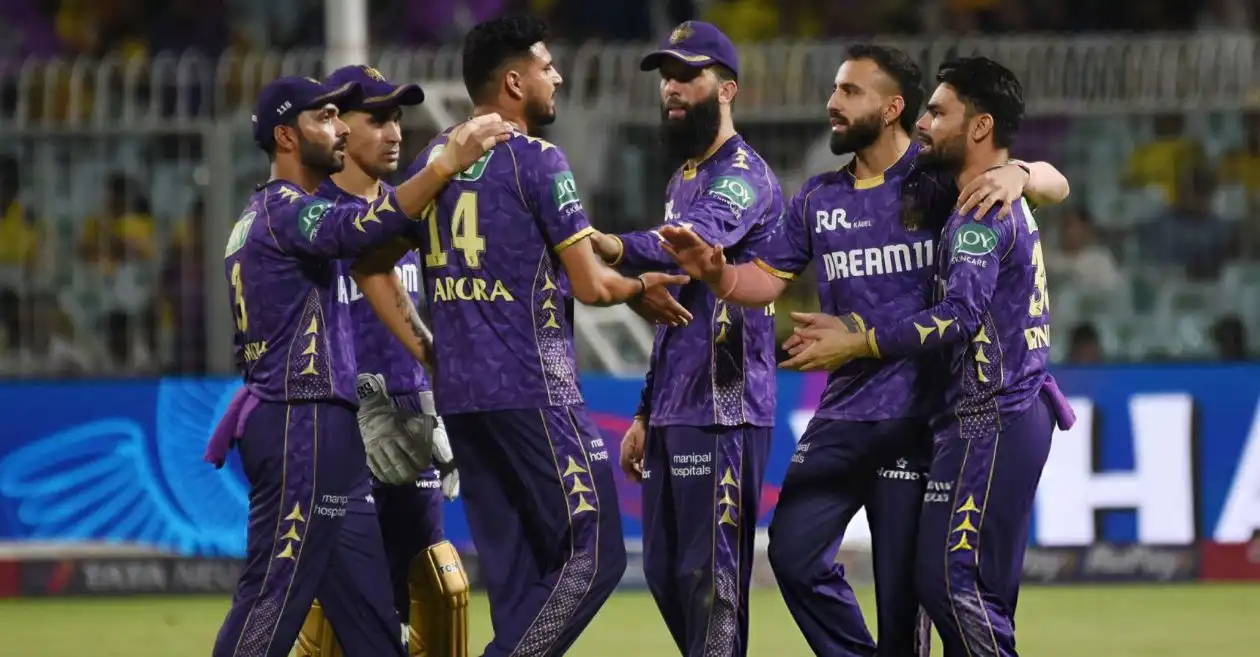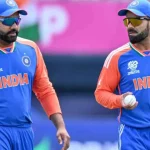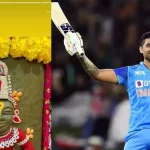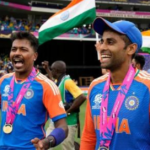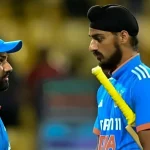The Indian Premier League (IPL), often described as the cricketing carnival that captivates millions worldwide, is no stranger to high drama — both on and off the field. This year, the drama has extended beyond the boundary ropes, sparking a fierce debate around a mid-season rule change on match timings instituted by the Board of Control for Cricket in India (BCCI). The amendment, which allows additional time to accommodate rain-affected matches, has upset the delicate balance of the league and drawn sharp criticism from one of its key franchises: Kolkata Knight Riders (KKR).
KKR’s recent rain-affected clash against Royal Challengers Bengaluru (RCB), which ended in a washout, was a critical juncture in the tournament. The franchise’s Chief Executive Officer, Venky Mysore, has vocally questioned the fairness of this mid-season adjustment, arguing that the change could have potentially altered the course of their IPL campaign — and, by extension, the entire playoff race.
The Rule Change That Rocked the IPL
Before delving into the controversy, it’s important to understand what the rule change entails. Following a meeting of the IPL Governing Council, the BCCI amended the playing conditions to give umpires and officials more flexibility in dealing with weather interruptions.
Previously: Matches had a strict one-hour grace period post the scheduled start time to accommodate delays, including rain or bad light, after which the number of overs would be reduced accordingly.
Now: The new rule (playing condition 13.7.3) extends the permissible delay window to two hours, allowing matches starting as late as 9:30 PM IST to proceed without any reduction in overs. This means a five-over contest could theoretically start close to midnight — a scenario unheard of in IPL history.
The intention behind this change was clear: to minimize the number of no-results and maximize cricketing action for fans and stakeholders alike, especially during a tournament where every match outcome holds immense significance.
KKR’s Perspective: A Frustration Fueled by Lost Opportunities
Venky Mysore, the stalwart CEO of KKR, has emerged as the loudest voice opposing this mid-season tweak. In a pointed communication addressed to IPL Chief Operating Officer Hemang Amin, Mysore underscored how the lack of this extended buffer during KKR’s rain-affected match against RCB could have changed the fate of the game — and by extension, the franchise’s entire season.
“When the IPL restarted on May 17, it was clear that the match between KKR and RCB was at high risk due to rain,” Mysore wrote, emphasizing the publicly available weather forecast and the need for better contingency planning. “The game was washed out, but if the 120-minute buffer now being applied had existed then, at least a 5-over contest might have been possible.”
For KKR, the stakes were enormous. Entering the game, their playoff aspirations were hanging by a thread, with their place in the top four far from assured. A win could have propelled them closer to qualification, while a loss or no-result severely dented their momentum.
But with the match abandoned without a ball bowled, KKR remained stuck on 12 points from 13 games, mathematically eliminating them from playoff contention as the maximum points they can reach (14) fall short of the usual cutoff.
The Emotional and Strategic Fallout
The fallout of this washout goes beyond just numbers on a points table. The timing of the no-result impacted KKR’s morale, their fans’ hopes, and the franchise’s strategic planning. Mysore lamented the inconsistency and last-minute nature of the decision:
“Such ad hoc decisions and inconsistencies of applying them are not appropriate for a tournament of this standing.”
KKR has had its share of weather misfortune this season. Earlier in the tournament, another fixture involving the team was washed out, compounding the impact of uncontrollable external factors on their campaign.
For a team like KKR, which thrives on momentum and fine margins, these disruptions are more than mere statistical inconveniences. They can derail confidence, force tactical recalibrations, and affect player rhythm — all of which can cost dearly in a league as competitive as the IPL.
What the BCCI Aims to Achieve
From the BCCI’s perspective, the revised rule is an effort to keep cricket alive even in challenging conditions, ensuring fans get the full thrill and players get a fair chance to contest.
By extending the window for delayed starts, matches that might have otherwise been abandoned can now be salvaged — albeit in a shortened format. This approach aligns with a broader trend in cricket administration to adapt schedules and playing conditions dynamically in response to weather, light, and logistical challenges.
The Governing Council’s decision was unanimous, emphasizing the need for uniformity and fairness across all matches in the remaining eight games of the league stage. However, the timing of the announcement — after several matches had already been played — and its retrospective impact have fueled the current controversy.
Broader Implications for the IPL
The debate around KKR’s grievance opens up bigger questions about rule changes during an ongoing tournament:
1. Fairness vs Flexibility
Is it fair to introduce significant rule changes mid-season? While flexibility is essential to accommodate unforeseen circumstances, sudden amendments can upset the competitive equilibrium and be perceived as disadvantaging teams that have already played under the old rules.
2. Communication and Transparency
Clear and timely communication is key in leagues like the IPL where stakes are sky-high. Teams, players, and fans must be made aware of rule changes well in advance to prepare and adapt accordingly.
3. Weather Contingency Planning
Given India’s diverse climate, rain interruptions are an inevitability in the IPL. Proactive scheduling — such as avoiding known monsoon hotspots or adjusting match timings preemptively — could mitigate these disruptions better than reactive rule changes.
4. Player Welfare
Starting matches close to midnight raises questions about player fatigue, recovery, and safety. The IPL’s intense schedule demands physical and mental fitness, and matches extending late into the night might take a toll on players’ health and performance in subsequent games.
Voices from the Cricketing World
Several former cricketers, commentators, and analysts have weighed in on the issue. Some argue that the BCCI’s rule change is a step in the right direction, designed to maximize cricketing action for the fans and sponsors who invest heavily in the IPL.
Others sympathize with KKR’s plight, emphasizing that rule consistency and planning are vital in a tournament of such magnitude.
Former Indian pacer and commentator Ajit Agarkar noted, “Weather disruptions are part and parcel of cricket, but the key is to have clear and stable playing conditions. Mid-season changes can disrupt strategies and unfairly affect teams, especially those on the cusp of playoffs.”
Lessons for Future IPL Seasons
The current controversy offers important lessons for the BCCI and IPL organizers:
-
Advance planning: Weather-related adjustments should be factored in before the season starts, with flexible scheduling and venue selection minimizing risk.
-
Rule stability: Any playing condition changes should ideally be implemented between seasons rather than mid-way, barring emergencies.
-
Stakeholder consultation: Teams and franchises should be involved in discussions around rules affecting match outcomes, to ensure fairness and buy-in.
-
Fan experience: The fanbase’s expectations for uninterrupted cricket must be balanced against practical challenges, including player health and broadcast considerations.
What Lies Ahead for KKR?
For KKR, the focus now shifts from what might have been to what lies ahead. Eliminated from playoff contention, the franchise will look to regroup, nurture young talent, and build momentum for next season.
Venky Mysore’s candid criticism highlights the passion and ambition within the franchise, signaling their intent to push for greater clarity and fairness in future IPL tournaments.
The team’s loyal fanbase, known for their unwavering support, will hope that this season’s weather misfortunes and administrative controversies become a learning curve rather than a recurring theme.
Balancing Cricketing Integrity and Practicality
The IPL’s mid-season timing rule change debate encapsulates the challenges of managing a fast-paced, high-stakes league in a country where weather unpredictability is a constant factor. While the BCCI’s intent to extend playing windows to reduce washouts is commendable, the timing and implementation have raised valid concerns about fairness and consistency.
KKR’s frustration is a reminder that in sports, every rule and regulation can have profound consequences — sometimes tipping the scales of fate in a tournament defined by fine margins. As the IPL continues to grow in stature and scale, its administrators must balance the dual demands of cricketing integrity and practical flexibility, ensuring the tournament remains both exciting and equitable for players, franchises, and fans alike.
Please check for information on the best betting sites in India – https://selectory.org/best-betting-sites/
